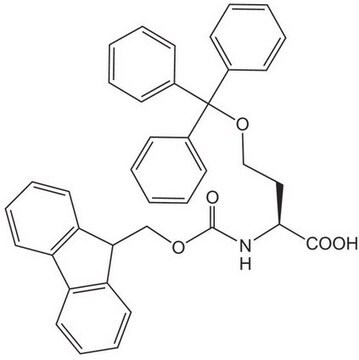SMB00962
Phenylacetyl-L-glutamine
≥95%
Synonyme(s) :
(S)-5-Amino-5-oxo-2-(2-phenylacetamido)pentanoic acid, N-Phenylacetylglutamine, Phenylacetylglutamine
About This Item
Produits recommandés
Source biologique
synthetic
Niveau de qualité
Qualité
research grade
Pureté
≥95%
Forme
powder
Conditions de stockage
(Store in tight containers in a cool and dry place)
Technique(s)
HPLC: suitable
Couleur
off-white
Traces de cations
C: 56.1—62%
Température de stockage
room temp
InChI
1S/C13H16N2O4/c14-11(16)7-6-10(13(18)19)15-12(17)8-9-4-2-1-3-5-9/h1-5,10H,6-8H2,(H2,14,16)(H,15,17)(H,18,19)/t10-/m0/s1
Clé InChI
JFLIEFSWGNOPJJ-JTQLQIEISA-N
Description générale
Application
Caractéristiques et avantages
- Ideal for biochemical, microbiome and metabolomics studies
- High quality product for research applications
Autres remarques
Code de la classe de stockage
11 - Combustible Solids
Classe de danger pour l'eau (WGK)
WGK 3
Point d'éclair (°F)
Not applicable
Point d'éclair (°C)
Not applicable
Choose from one of the most recent versions:
Certificats d'analyse (COA)
Don't see the Right Version?
If you require a particular version, you can look up a specific certificate by the Lot or Batch number.
Déjà en possession de ce produit ?
Retrouvez la documentation relative aux produits que vous avez récemment achetés dans la Bibliothèque de documents.
Notre équipe de scientifiques dispose d'une expérience dans tous les secteurs de la recherche, notamment en sciences de la vie, science des matériaux, synthèse chimique, chromatographie, analyse et dans de nombreux autres domaines..
Contacter notre Service technique








